Trump Still Doesn’t Believe Russia Interfered In The 2016 Election
Despite what his own intelligence chiefs are saying, President Trump still does not believe that Russia interfered in the 2016 election.
Despite the fact that his own intelligence chiefs have confirmed yet again that Russia did indeed interfere in the 2016 election and that it is seeking to do so again in 2018, President Trump still doesn’t believe it happened:
President Donald Trump still isn’t buying that Russia interfered in the 2016 election.
Even as his intelligence chiefs unanimously told a Senate panel Tuesday that Russia meddled in 2016 and is planning to do so again in 2018, three sources familiar with the President’s thinking say he remains unconvinced that Russia interfered in the presidential election.
While this issue is separate from the question of whether Trump campaign officials colluded with Russian officials, to Trump the issues are interwoven, the sources say. He views the notion that Russia meddled in the election as an argument that he had help to win, and that he didn’t win the election on his own.
Trump’s view contradicts his intelligence chiefs, including Director of National Intelligence Dan Coats, CIA Director Mike Pompeo and FBI Director Chris Wray, who all testified — again — on Tuesday that they supported the intelligence community’s January 2017 assessment that Russia interfered in the 2016 election.
“There should be no doubt that Russia perceives its past efforts as successful and views the 2018 US midterm elections as a potential target for Russian influence operations,” Coats said at the Senate Intelligence Committee hearing on worldwide threats.
Trump has been skeptical about the intelligence assessment that Russia meddled ever since he was first briefed on the issue during the presidential transition. But that skepticism has endured even after Trump hand-selected his own intel chiefs and they reiterated the conclusions of their predecessors.
Trump has only begrudgingly acknowledged that Russia may have interfered in the election. In a press conference as president-elect, Trump said, “As far as hacking, I think it was Russia. But I think we also get hacked by other countries and other people.” At a June 2017 press conference in Poland, he again said Russia meddled in the election, but added that “other people and other countries” likely did as well.
More often, Trump has cast doubt on accusations of Russian meddling. He has questioned whether the Russians were responsible for hacking the Democratic National Committee, and he has called the entire “Russia story” a hoax perpetuated by angry Democrats. He even convinced Pompeo to personally meet with a conspiracy theorist who denies that Russia hacked the DNC.
Trump caused a stir during his trip to Asia when he suggested that he believed Russian President Vladimir Putin’s denials that his government meddled in the election. Trump and Putin met several times on the sidelines of the APEC summit in Vietnam. “Every time he sees me, he says, ‘I didn’t do that,'” Trump said. “And I believe, I really believe, that when he tells me that, he means it.”
But members of Trump’s cabinet have bucked Trump and sided with the intelligence community including Secretary of State Rex Tillerson and US Ambassador to the United Nations Nikki Haley, who said in October: “When a country can come interfere in another country’s elections, that is warfare.”
Tuesday’s hearing was the latest opportunity for Democrats to pounce on the conflicting messages coming from the intelligence chiefs and their commander in chief. Maine Sen. Angus King, an independent who caucuses with Democrats, urged the intelligence officials to convince Trump that the issue of collusion was separate from election meddling.
“I understand the President’s sensitivity about whether his campaign was in connections with the Russians, and that’s a separate question. But there is no question — we’ve got before us the entire intelligence community, that the Russians interfered in the election in 2016 — they’re continuing to do it, and they’re a real imminent threat to our elections in a matter of eight or nine months,” King said.
“My problem is I talk to people in Maine who say the whole thing is a witch hunt and a hoax because ‘the President told me’,” he added.
The irony of reports such as this, of course, is that it doesn’t match the conduct he’s engaged in since virtually the beginning of his Administration with regard to the investigation itself, or the allegations of collusion and obstruction of justice. Since becoming President, Trump has engaged in efforts that seem clearly designed to undermine the Russia investigation. These efforts began exactly one year ago today, when Trump met with F.B.I. Director James Comey if he could end the investigation of former National Security Adviser Michael Flynn. Two months later, Trump fired Comey just days after Comey had testified about the bureau’s investigation of Russian election interference and the Trump campaign before a Senate committee. Later, Trump admitted that he fired Comey because of the Russia investigation. Trump also contacted the heads of the intelligence agencies and pressured them to bring the investigation to an end and to influence their potential testimony to Congress to state that Trump and his campaign did not collude with Russia or Russian officials. Trump has also implored Senators to end the Senate Intelligence Committee investigation into the Russia affair or at least publicly confirm that there was no collusion between the Trump campaign and Russian officials. And finally and most recently, there have been rumors that Trump has at least considered firing special counsel Robert Mueller and Attorney General Jeff Sessions as a means of undermining the investigation. For a man who is allegedly skeptical that the reports of Russian interference are true, he’s certainly acting like someone who believes that they are and who is actively trying to undermine the investigation to protect himself.
As Jeniffer Rubin puts it, Trump’s skepticism and inaction are putting the nation in danger:
Trump’s refusal to defend our elections — a blatant instance of disregarding his oath of office — comes in the face of multiple calls to secure our election machinery. Max Bergmann, the head the Moscow Project for the Center for American Progress, told me “our democracy was attacked in 2016, and the intelligence community just unanimously told us that the Russians plan to do it again in the 2018 elections. Yet the response from Trump and the Republican Congress is a collective shrug.” Bergmann added: “There have been no Cabinet meetings on Russian interference, no agency has been charged with leading a response, and no election security legislation. Worse, the administration amazingly turned lemonade into lemons with the new Russia sanctions legislation by not sanctioning anyone.” He concluded, “this is a deliberate policy of appeasement that is practically inviting future attacks on our democracy.”
(…)
The Republicans’ culpability in failing to move swiftly to protect our democratic machinery is stunning. At some point, their 2018 opponents will start asking: Why aren’t Republicans protecting American democracy against Russian aggression? The answer is that Trump’s ego seems to take precedence over the country’s defense — and congressional Republicans are too timid to force action.
For the most part, I think Rubin nails the explanation for what is driving Trump here. From the day after the election forward, he is pushed the idea that he won an overwhelming victory over Hillary Clinton when in reality he lost the popular vote and his victory in the Electoral College was among the narrowest in American history and in any case not nearly as large as former President Obama’s wins in 2008 and 2012. Given that, he likely believes any admission by Trump that undermines or appears to undermine the idea that Trump won the election legitimately would undermine his Presidency in general and him specifically. More nefariously, of course, there’s the possibility that Trump, in fact, aware of wrongdoing on the part of his campaign and that he’s been involved in conscious efforts to undermine the investigation and obstruct justice in order to protect himself and those close to him. Whatever the explanation, though, the fact that we have yet another report that Russia is going to intervene in the upcoming election and the President doesn’t care about it is not only maddenning but a clear dereliction of his duties to the nation. Of course, it’s not like either his supporters or Republicans on Capitol Hill are going to care.
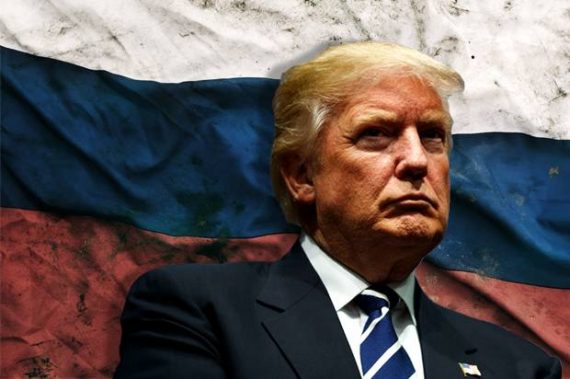

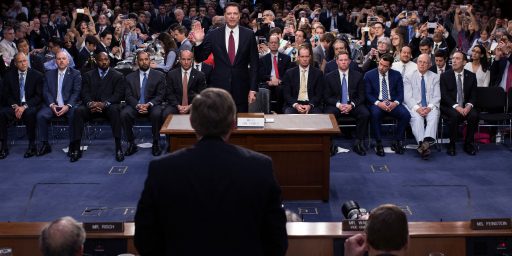
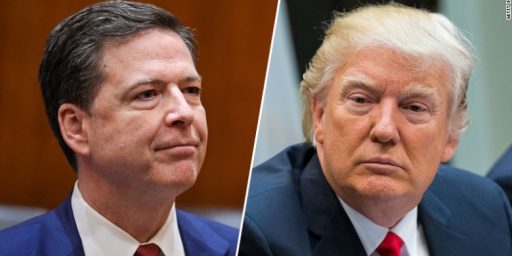
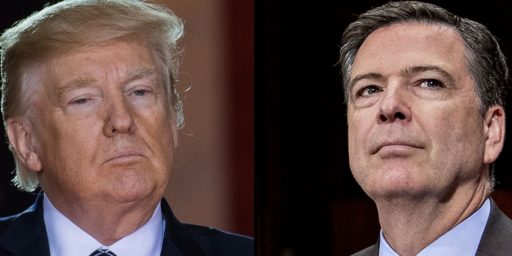
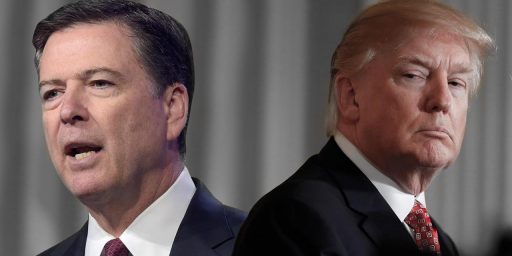
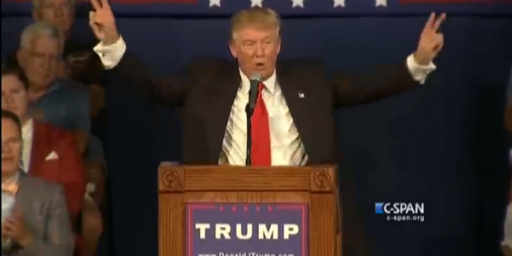
Trump voters don’t care.
I don’t think your headline “Trump still doesn’t believe …” reflects any actual mental state that he holds.
It’s not just Trump who believes that. It’s pretty clear that VP Pence is of the same opinion, hence his recent misrepresentation of the US intelligence community’s formal assessment of Russian interference (published in January 2017):
http://nymag.com/daily/intelligencer/2018/02/pence-lies-that-u-s-intel-found-russia-didnt-elect-trump.html
The problem is that there probably isn’t any way to accurately assess the impact of the majority of Russian hacking (broadly defined) activities as the vast majority of it were social hacks.
@Matt Bernius:
Pence may not believe it. He may say it to keep his boss happy.
What @alkali: said. No one should ever report that politician A believes X just because politician A said he believed X. So thank you, Doug, for noting Trump’s actions are inconsistent with the headline.
However, we’re conflating two things. Trump said his redline with Mueller was investigation of Trump finances prior to the election. IIRC Mueller crossed that line before Trump asked McGahn to fire Mueller. There is the faint possibility the guys in the campaign didn’t tell Trumpsky they were colluding so it’s possible, unlikely but possible, Trump believes himself innocent of campaign collusion.
@Matt Bernius:
It’s too early to rule out the possibility that one way or another the Trump campaign or Cambridge Analytics provided targeting data to the hackers.
A rule I learned from my first wife: Assume you are deaf and determine intention from only what you see. Trump has some sort of obligation to Putin. Every other explanation requires too much suspension of disbelief.
What exactly means “interfered”? It is anything different from what the National Endowment for Democracy, the National Democratic Institute and the International Republican Institute are supposed to do?
@gVOR08:
Understood and agreed (though that’s more about collusion than impact). However, the result of those actions would be social hacks (i.e. targeted Facebook posts). It’s possible to measure their reach, but speaking to the actual impact is more difficult (if impossible to quantify). Did it help drive more Trump supporters to the polls or suppress enthusiasm among Democrats? Did they flip votes? That’s really hard to gauge.
Now, if it can be proven that hackers both penetrated voter systems and changed voting registration data (something that has not been proven to my knowledge), then there might be a better argument for being able to extrapolate impact.
@Miguel Madeira:
I think its a fair question — especially in terms of the National Endowment for Democracy and it’s International Republican Institute arm.
It does appears the Russian interference was far more coordinated and “hands on” than those organizations (which tend to primarily funnel money into local groups). I don’t think any of them, for example oversaw coordinated operations in the way that the Russians did (i.e. organized troll farms executing multiple events throughout the US). And the Russian interference seems more directly tied into the state apparatus (though one can definitely argue the degree to which the NED and IRI are or are not direct extensions of our government).
And there’s evidence that Russian hackers did penetrate a number of election related servers (though no direct evidence yet that they altered voter registration records).
TL;DR — Probably the biggest difference is that the Russians appear to have been more effective.
I’s also worth noting that Putin kicked the National Endowment for Democracy out of Russia in 2015 for being a threat to their government. So in that respect, he’s taking our election hacking efforts more seriously than we’re apparently taking his.
it is not true to say Trump doesn’t believe in Russian interference. Of course he believes. So does Pence. So do Ivanka and Jared and Kelly and the rest. In fact, so do all the Republicans who claim they don’t. They all know it’s true. Everyone knows it’s true.
The fight is not between those who believe and those who do not, the fight is between Americans so devoid of patriotism that they embrace Trump’s win regardless of the reason for it, and those who still believe in the Constitution and the rule of law. Republicans know, they believe, and they welcome the subversion of American democracy.
So can we not at last cut the bullsh!t? Everyone knows. Everyone. The Trump regime and the entirety of the GOP are engaged in a cover-up, and you don’t have a cover-up unless you know you’re guilty. These people are traitors, they are attacking the FBI, the Justice Department and the intelligence community, deliberately, maliciously attacking American laws and institutions to cover up for the bleedingly obvious fact that Donald Trump is a tool of Vladimir Putin.
@Miguel Madeira:
Let me explain the difference: we promote free elections. We push for transparency in elections. The Russians are attempting to invalidate the democratic process. We support democracy and valid elections, they support oligarchy and laugh at elections.
This is a false equivalency. A surgeon cuts a man open. A murderer cuts a man open. Same cutting, but not the same thing at all.
@michael reynolds:
At first look, it seems that both try to support some players against others (and the Solidarity Election Alliance, created with the support of IRI in Poland in 1996, it was ideological very similar to Trumpism, than it is not even a question of supporting specific ideologies).
Speaking as a Portuguese, these talk of interference seems much like saying that only the US have the right to support specific political players in other countries.
[Perhaps a bit off-topic, but I remember when, about a political crises in Ukraine in 2008, a Portuguese conservative commentator wrote “the result [of the dispute between pro-Russians and pro-Western factions] will depend of the Russian interference and of the Western support”, remembering the famous irregular verbs, like “I have an independent mind, you are eccentric, he is round the twist”]
@michael reynolds:
In the case of the IRI, the comparisons are closer than you might think. Of the three @Miguel Madeira listed, the IRI definitely has a record of getting into some really questionable stuff that goes well beyond “promoting democracy”:
https://en.wikipedia.org/wiki/International_Republican_Institute#Activities
@Miguel Madeira: “Round the twist”… very nice. I’m sure to use that some time.
I was thinking about the larger question of equivalence between the Russian interference and those NGO’s that you mentioned. And the first thing that jumps out is that the Russian foreign intelligence service was proceeding with their work in secret. The other organizations you mentioned are international civil servants who operate without state sanction and open to scrutiny.
You will not get any disagreement from me if you accuse the U.S. intelligence services of meddling in other nations’ elections through the agency of some of these do-good NGOs. And shame on them (usually). Does not change my remark above.
@Miguel Madeira:
You’re being extremely silly at best and outright disingenuous at worst.
Historically, Russian interference in Ukrainian elections amounted to facilitating widespread election fraud and likely collusion in an assassination attempt on the (then) main Ukrainian opposition candidate Yushchenko.
That’s, to say the least, a far fry from openly offering some financial and logistical support to local political groups.
@CSK:
If “it” is “acknowledging Russian interference will legitimize their win”, I think it’s pretty clear Pence more or less believes “it” as well. He’s just slightly more open to stating that some form of interference occurred (i.e. not completely contradicting his intelligence agencies).
Pence’s position is essentially “something happened, but our intellegence agencies determined it didn’t effect the results.”
Not that this is categorically *not* what the agencies reported. The report states that the agencies did not study the impact and the report in no way addresses impact.
Trump and Pence are not exactly masters of comprehension. What needs to be done is to convince them that the Russians will be targeting Republicans in 2018 to destabilize the existing power structure in Washington. That might get them interested. There is probably no way either one of them can figure out why Trump as president with a Republican Congress is good for Russia.
@Matt Bernius:
Trumpsky and friends have a habit of admitting whatever it’s been shown they did, while denying anything beyond that. And when it’s shown they did indeed commit the next step, admit just up to there, rinse and repeat. Trying to move the goalpost to ‘no actual cast ballots were changed’, is, indeed, pretty much an admission of everything short of that.
And I would not be surprised, in the fullness of time, to learn that ballots were changed.
Mueller just indicted 13 Russians on charges of defrauding the US and interfering with the election. He also said US citizens were unwitting participants.
In other words, Russia interfered, but there was no collusion. Trump and his team were just dupes. Not surprising, but not sure if that’s better or worse.